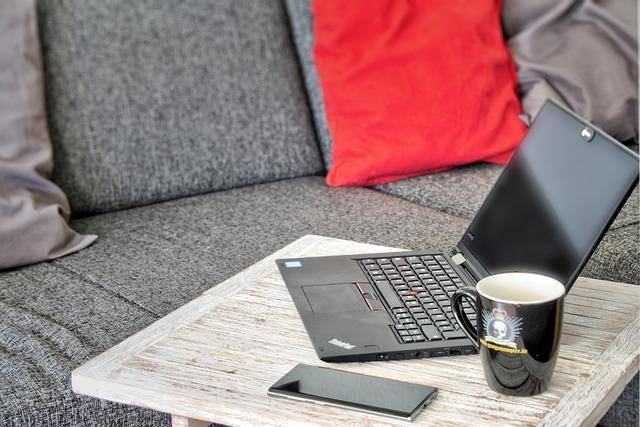Philadelphia Introduces Nighttime Business Curfews to Enhance Neighborhood Safety
In an effort to bolster public safety and reduce late-night disturbances, Philadelphia city officials have enacted a new ordinance imposing curfews on businesses in select neighborhoods. Starting June 15, 2024, establishments such as retail shops, eateries, and other commercial venues in high-crime areas will be required to close by 10 p.m. This initiative is part of a broader strategy to lower crime rates and improve residents’ quality of life during nighttime hours. Alongside the curfew, increased police patrols and community watch programs will be intensified to maximize safety outcomes.
Highlights of the new business curfew include:
- Curfew timeframe: 10 p.m. to 6 a.m.
- Applies to neighborhoods with elevated safety concerns
- Strict penalties including fines and possible license suspensions for non-compliance
- Exemptions for critical services like pharmacies and gas stations
| Neighborhood | Curfew Hours | Effective Date |
|---|---|---|
| Kensington | 10 p.m. – 6 a.m. | June 15, 2024 |
| Frankford | 10 p.m. – 6 a.m. | June 15, 2024 |
| North Philadelphia | 10 p.m. – 6 a.m. | June 15, 2024 |
Philadelphia’s Business Community and Residents React to New Curfew Regulations
The introduction of the business curfew has sparked a spectrum of reactions among Philadelphia’s local entrepreneurs and residents. Many business owners acknowledge the city’s commitment to safety and hope the curfew will reduce nighttime disturbances. However, some express apprehension about the financial impact, particularly for bars, restaurants, and convenience stores that rely heavily on late-night customers. Several establishments have already begun revising their operating hours and staffing plans to comply with the new rules.
Community feedback also varies. While neighborhood groups and many residents welcome the curfew as a positive step toward quieter, safer streets, some activists advocate for solutions that balance safety with economic vitality, cautioning against measures that might stifle local nightlife or disproportionately affect small businesses. Below is a summary of the diverse viewpoints:
- Proponents: Emphasize enhanced safety and crime reduction.
- Critics: Highlight potential economic drawbacks and loss of late-night amenities.
- Moderates: Recommend supplementary community programs alongside curfew enforcement.
| Group | Primary Concern | Expected Benefit |
|---|---|---|
| Business Owners | Revenue decline due to reduced hours | Decreased crime near premises |
| Residents | Noise and safety issues | More peaceful, secure neighborhoods |
| Community Advocates | Equitable enforcement and support | Stronger community involvement |
Enforcement Strategies and Penalties for Violating Philadelphia’s Business Curfew
To ensure adherence to the new curfew, Philadelphia law enforcement will increase patrols and conduct random inspections during restricted hours in the designated neighborhoods. Businesses operating past the 10 p.m. cutoff will face escalating penalties, starting with fines of up to $1,000 for initial violations. Repeat offenders risk harsher consequences, including license suspensions and temporary closures.
The following table outlines the penalty framework for curfew infractions:
| Violation Level | Fine Amount | Additional Penalties |
|---|---|---|
| First Violation | $1,000 fine | Official warning issued |
| Second Violation | $2,500 fine | Possible suspension of business license |
| Third Violation | $5,000 fine | Temporary closure of business |
How Businesses Can Adjust to Meet Philadelphia’s New Curfew Requirements
Businesses within the affected zones should promptly revise their operating schedules to comply with the curfew, ensuring closure by 10 p.m. This may involve reorganizing employee shifts, enhancing security protocols during closing hours, and clearly communicating changes to customers. Investing in improved exterior lighting and surveillance technology can also help deter after-hours activity and demonstrate compliance.
Business owners are encouraged to seek legal advice and utilize city resources designed to assist with the transition. The table below summarizes key steps for effective compliance:
| Compliance Focus | Recommended Measures |
|---|---|
| Operating Hours | Set closing time at 10 p.m.; display updated hours prominently |
| Staff Training | Educate employees on curfew rules and enforcement procedures |
| Security Enhancements | Install cameras, improve lighting, and consider on-site security presence |
| Customer Notifications | Use signage, social media, and direct communication to inform patrons |
- Monitor updates as city officials continue to evaluate and potentially adjust curfew policies.
- Collaborate with community groups to promote neighborhood safety and awareness of curfew regulations.
Final Thoughts on Philadelphia’s Business Curfew Initiative
As Philadelphia rolls out its new business curfew in targeted neighborhoods, city leaders and residents will be closely observing its effects on public safety and community well-being. While many advocate that the curfew will help reduce late-night disturbances and crime, some business owners remain cautious about the economic impact. The upcoming months will be critical in assessing how this policy balances the needs of safety and commerce, potentially serving as a model for other urban areas facing similar challenges.


